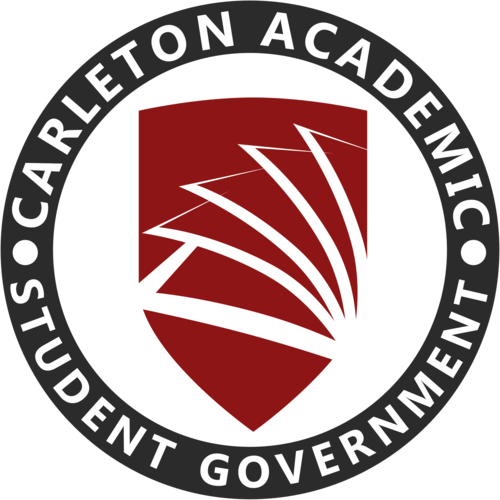
Written By: CASG’s Student Voices Committee
Carleton’s Compassionate Grading Policy
April 4, 2025
It is no secret that the pandemic had a profound impact on post-secondary education in Canada. In response, many educational institutions in Ontario, including Carleton University, implemented a series of compassionate grading policies to help students adapt to changes in the learning environment. At Carleton, these efforts were spearheaded by the Carleton Academic Student Government (CASG), which worked with the University administration to support students navigating the complexities of remote learning.
Carleton’s compassionate grading policy has been through multiple renditions since it was first introduced in October of 2020. The Carleton University Senate passed a motion that took effect for the fall semester which stipulated that all failing grades (except for courses failed due to academic integrity violations) would automatically convert to a UNSAT (unsatisfactory) designation; not impacting a student’s cumulative grade point average (CGPA). Additionally, students were given the ability to declare 0.5 credits as SAT (satisfactory), which protected their CGPA from certain course grades. The motion also postponed punitive academic performance evaluations by one year to provide students with additional time to adjust to educational changes without the threat of facing academic penalties.
At the end of the pandemic, Carleton eliminated these options for a large majority of students. However, CASG’s continuous advocacy inspired the Senate to introduce an exploratory credit system for first-year students called the First Year Grading Policy. The initiative came into effect for the fall semester of 2022 for new undergraduate students enrolled in a degree program who entered Carleton without any previous post-secondary studies. The policy allows students to assign 2.0 credits as credit courses only (CR) which apply to their degree without affecting their CGPA. Failing grades are automatically changed to a no record (NR) designation which does not show on their transcript. Allowing students to take courses on a pass/fail basis encourages academic exploration outside an individual's area of study without CGPA repercussions.
CASG has been a driving force when it comes to advocating for academic policy reforms; however, unsurprisingly, many students remain unsatisfied with the First Year Grading Policy because it does not extend compassionate grading options to all students. It’s important to note that the original grade is still considered for scholarships, awards, prerequisites and other academic factors such as Co-op. Balancing Carleton’s reputation as an academically rigorous institution while protecting student well-being is not without its challenges. In response, CASG has fielded suggestions from its Councillors and researched existing compassionate grading schemes from other Universities to engage in grade reform discussions with Carleton’s administration.
For example, in April 2023, amid CUPE4600 labour disruptions, CASG urged the Senate to reaffirm its stance on compassionate grading. As a result, a policy was passed for the winter term that granted students the option to convert any passing final letter grade (D- and above) to a SAT designation. This ensured that any academic changes due to the strike would not adversely affect students’ permanent academic records. Additionally, failing grades were automatically converted to UNSAT, except in cases involving violations of academic integrity. The Carleton Senate remains committed to working with CASG, as in the past, to consider options for academic accommodations during labour disputes.
CASG’s persistence in advocating for academic policy reforms demonstrates its commitment to improving students' academic experience. By ensuring that student voices remain at the core of decision-making processes, CASG has earned its title as a responsive student-centred government. Carleton University’s compassionate grading policy, championed by CASG, represents the organization's effort to put student well-being at the forefront of all academic discussions.
If you are interested in learning more about CASG’s advocacy projects or would like to submit an idea for the next Student Voices article, please reach out to vpacademic@casg.ca.
